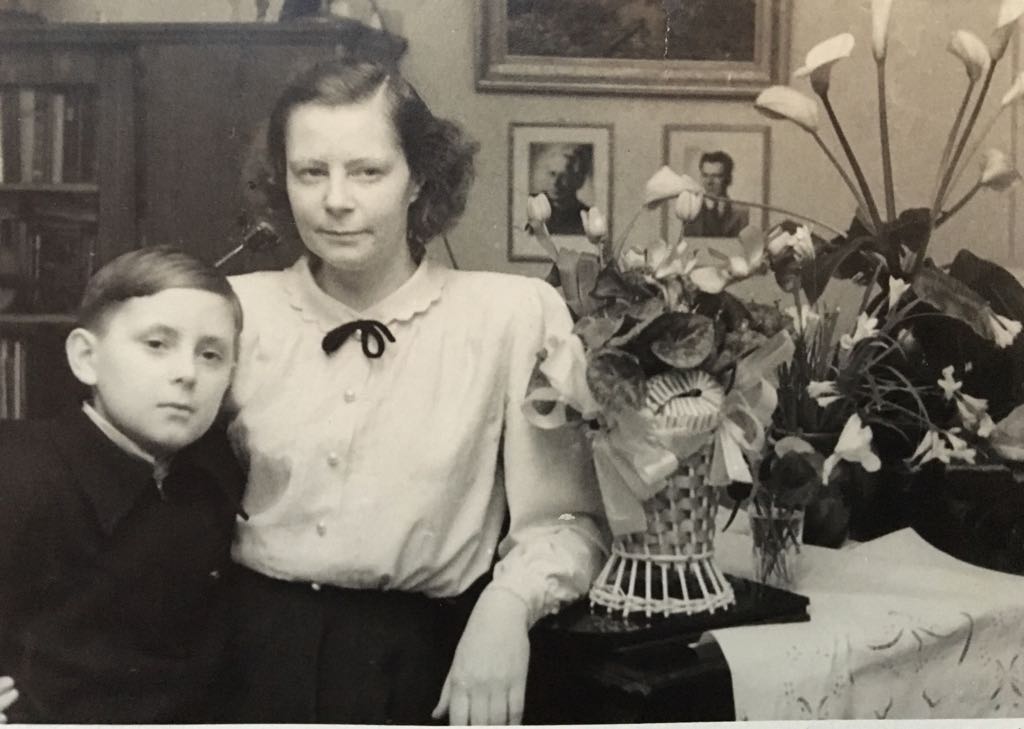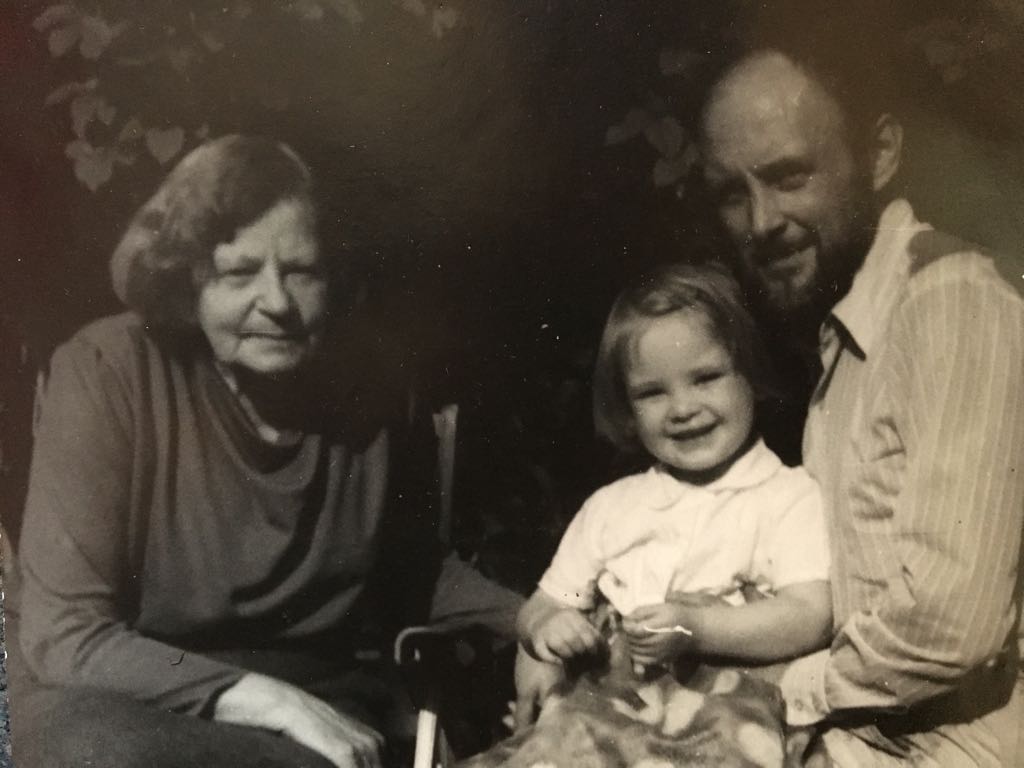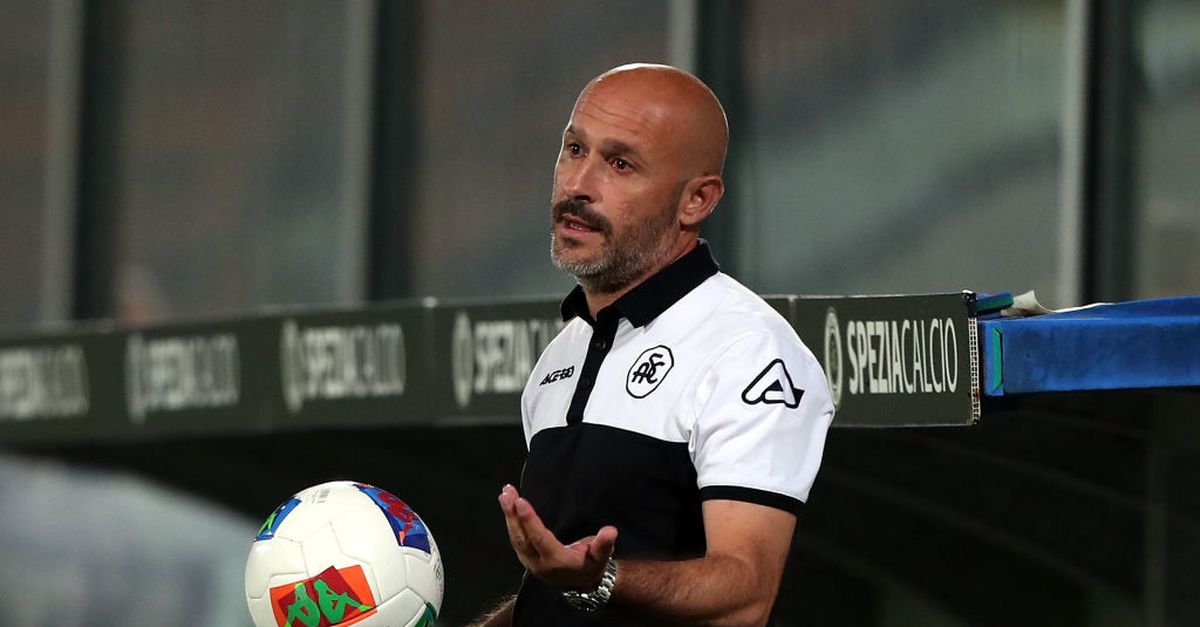On June 22, we celebrate the centenary of the legendary teacher and daughter of Jēkabs Mediņš, Marija Mediņa. She worked for many years at Jāzeps Mediņš Music High School (then – college), where composer Arturs Maskats also studied.
In honor of Marija Mediņa, Arturs Maskats remembers her school years, legendary teachers and their important role in schooling in “Klasika”: both curious stories and serious events come to mind, even the common experience during the fall of the Berlin Wall… Probably if Marija Mediņa lived in our time, she would have fulfilled her dream of becoming a conductor of a symphony orchestra, unfortunately it did not happen, but Arturs Maskats remembers that Marija Mediņa dreamed of conducting the symphony of Cezar Frank’s re minor and Sergei Rachmaninoff’s 2nd piano concert…
Arturs Maskats
Photo: Publicity image
–
–
Signe Lagzdiņa: In order to honor the centenary of Marija Mediņš, we have invited Arturs Muscats to a conversation – a composer who has had the good fortune and opportunity to study with Marija Mediņa herself. That’s the whole story, isn’t it, Artur?
Arthur Muscat: It is even strange for me to imagine that my beloved teacher is already a hundred. I think – madness, how time runs.
Teachers have not been in this sun for thirty years, but the memories and friendships she has given will not fade.
The brightest moments become even brighter from it. All of us who studied with her were happy. Marija Mediņa taught at Jāzeps Mediņš Music High School – she taught fundamental subjects needed by both musicologists and future composers: form analysis and instrumentation. It was a wonderful generation of teachers who were working in the “hunt” at that time – the head of the theory department was the composer Jānis Līcītis, a man with a very difficult fate – he was in Siberia, studied with Jāzeps Vītols and actively worked as a composer. But there was always something in his life as opposed to it.
They were all intelligent people of the old free state of Latvia with normal views on life.
And so was Marija Mediņa, next to her – music history teacher Vita Krūmiņa. We felt safe from the horrors and monkeys of Soviet ideology, because these teachers simply did not allow it, they were like in another world. Of course, they were counting on the reality at the time, but they gave us the right direction.

Marija Mediņa with her son Aristida
Photo: Mediņi family archive
–
–
All I can say is that when I got to the Latvian State Conservatory after what Mediņš School had given in instrumentation, form studies and also in the history of the orchestra, I really had nothing to do in the Conservatory, I had a very thorough foundation. And the same can be said about Jānis Līcīte in polyphony, music theory and harmony. These were fundamental objects that laid the foundation for all of life.
I think any of us who have studied with these great teachers have been grateful to them for that.
Marija Mediņa stood out with special rigor, a certain sharpness and sometimes also drama – she did not allow any carelessness, frivolity or laziness. She was strict and demanding. At the same time, she had a completely fantastic sense of humor and a very healthy attitude towards life – she didn’t miss a moment, if she could smile about something, if she could describe something very strongly – it could make us an unexpectedly interesting hour.
I remember one case where I was pale, pale and did not know where to look.
I went to Mary for an individual lesson in shape analysis, where she sat next to me at the piano – very close. Before that I had gone to a cafe with a classmate to celebrate his name a bit. It was a few minutes, but it was something that Marija Mediņa’s sensitive nose smells … Although at that time I had prepared the lesson absolutely brilliantly and with great enthusiasm I told about everything, and she listened with equal enthusiasm,
at the end of the hour Mary says to me, “When you have drunk something stronger than water, please take your breath in!” (laughs)

Three generations: Marija Mediņa, Aristīds Mediņš and Alise Mediņa
Photo: Mediņi family archive
–
–
We have Marija Mediņa’s voice recordings in the archives of Latvian Radio, and it seems to me that in this respect her tone of voice can also be heard a bit – her strong stance, but also her sharp humor.
Yes, sometimes she could get someone up and say – and now you say: I’m stupid (laughs). Today no one would allow it, but it was with such humor, irony – she did not humiliate the person, but knew how to show it in some special way.
We respected her very much and knew that Mary would ever come to the rescue and take our drama or adolescent struggle in an absolutely organic way.
She, of course, had a tremendous experience. Those who had not studied only with her – including Imants Kalnins. She was always proud that at the conservatory Leonīds Vīgners in conducting and teaching the orchestra, as well as in the composition of Jānis Ivanovs, always noted that those who come from Marija Mediņa can be completely relied on. That everything will be well done there. She was proud of it.
I now understand this – what is the extremely responsible work of a music teacher, which is even more important than at the Academy of Music. Because in a music college you have to give a person a path, the real bread. This is often crucial.
Mary was also very sharp, she could see the talents in an instant. It seems to me that her inner position was that all efforts must be made to help the talents, because the mediocre will strike themselves. Because talents are often lazy, rely on their abilities, they are often more careless. The realization of life that you will have to work very hard may come later. But people with lower abilities are immediately given something bigger – willpower and the ability to break through somehow. She felt it well.
When I graduated from the conservatory, after a while we, a small group of former students, became like her home friends. These were extremely interesting evenings.
Mary had a very good housewife ability – she prepared various dishes very deliciously. And for us, those evenings were always themed. It was the eighties.
In such a very nice, friendly atmosphere, we went with him even on one trip to the then German Democratic Republic, to East Berlin. In the late autumn of 1989.
What Marija Mediņš and I experienced in Berlin was the fall of the Berlin Wall. Coincidentally, we lived almost next to it, and what we experienced with our own eyes …
Arriving in Berlin, there was no real indication that there would be any politically significant change. And then in a few days it literally went away, it seemed as if a dam had been pulled open. (..) The whole wave of German enthusiasm and unity that took over Berlin at that moment … Maria said – it will all be with us. It was a little over a year before the barricades. We went to concerts and theaters very carefully, because the Germans, as good people, did not cancel anything. We easily got inside both the Commission Opera and various concerts. Everything happened despite the fact that all of Berlin was on the streets. For me, it was such a dream trip. Mary goes to museums in Berlin to hear all the stories together – she was fluent in German. (..) What is unforgettable is exactly the turn of the era that took place before our eyes. It was fabulous. I think it was a pleasure for Mary too, because –
if she did not suffer anything, it was a totalitarian system and Soviet thinking.
She allowed himself to say that too?
Yes, she gave in, sometimes it seemed – it’s even quite dangerous. (..) It could be felt that they, teachers of this generation, have ideologically tense relations with the school management. Shortly after graduating from the Department of Theory of Medinschool in 1977 and joining the Conservatory in the same year, Marija Mediņa retired. On a freelance contract, she continued to teach at the Garden School or to replace a sick teacher …
Listen to the full conversation on the Latvian Radio 3 “Klasika” program “PārMijas”.
–


